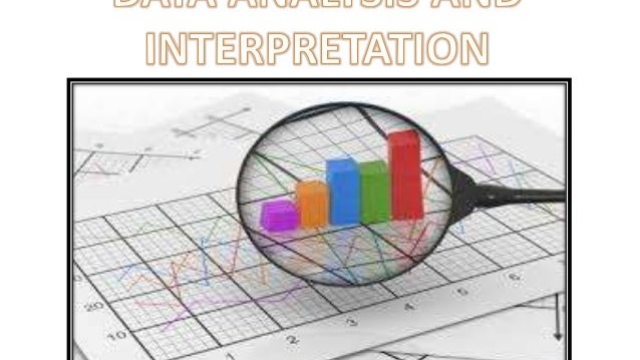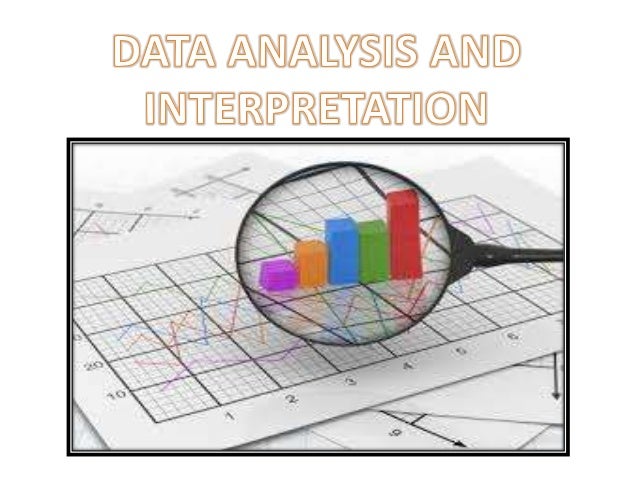Unlocking Insights: The Power of Research and Data Analysis
Joe Howard -

In today’s fast-paced world, where information is readily available at our fingertips, the ability to harness the power of research and data analysis is becoming increasingly important. Whether it’s in the realm of business, education, healthcare, or even personal endeavors, the ability to unlock valuable insights from vast amounts of information can be the key to success.
Research provides us with the foundation upon which we can build our understanding of the world around us. It allows us to delve deep into a particular subject, explore different perspectives, and challenge existing knowledge. By conducting research, we open ourselves up to new possibilities and discoveries, paving the way for growth and innovation.
Data analysis, on the other hand, takes the information gathered through research and transforms it into meaningful insights. It involves sorting, organizing, and interpreting data to identify patterns, trends, and correlations. By examining data in a systematic and rigorous manner, we can uncover valuable information that is otherwise hidden to the naked eye.
When combined, research and data analysis have the potential to unlock immense benefits across various fields. In business, for instance, they can help identify market trends, consumer preferences, and competitive advantages, leading to more informed decision-making and ultimately driving profitability. In education, research and data analysis can provide valuable insights into teaching methods, learning outcomes, and student success, enabling educators to adapt strategies that enhance the educational experience. In healthcare, they can contribute to improved diagnoses, treatment plans, and patient outcomes, saving lives and improving quality of life.
As we embark on a journey of exploring the power of research and data analysis, it’s important to recognize the immense value they hold. The ability to gather, analyze, and extract insights from data can truly be a game-changer, revolutionizing the way we understand and interact with the world. So let us embrace research and data analysis, as they hold the key to unlocking a wealth of knowledge and the potential for transformative impact.
The Importance of Research
Research is the backbone of knowledge acquisition and advancements in various fields. Through diligent investigation and study, researchers can delve deep into a subject and uncover valuable insights. Whether it’s exploring new scientific discoveries, understanding social phenomena, or improving business strategies, research plays a pivotal role in driving progress.
In today’s data-driven world, the importance of research has only grown further. With the immense amount of information available, proper research allows for the extraction of relevant data and the identification of trends and patterns. This enables decision-makers to make informed choices based on evidence and analysis rather than relying solely on intuition or guesswork.
Furthermore, research fosters innovation by encouraging exploration and experimentation. It serves as the foundation for groundbreaking discoveries and breakthrough technologies. By investing time and effort into research, individuals and organizations have the opportunity to challenge existing paradigms, push boundaries, and uncover new possibilities.
In addition to pushing the boundaries of knowledge, research also helps in practical problem-solving. Through systematic investigation, researchers can identify the root causes of issues and develop effective solutions. This can range from addressing societal challenges to optimizing processes in various industries, leading to positive outcomes and tangible improvements.
In conclusion, research is an essential aspect of progress and development. Its significance lies not only in expanding our knowledge but also in shaping our understanding of the world and driving positive change. By recognizing and embracing the importance of research, we can unlock valuable insights and pave the way for a brighter future.
Custom Research Paper Writing Service
The Process of Data Analysis
Data analysis plays a crucial role in unlocking valuable insights from research. It involves the careful examination and interpretation of data to make informed decisions and draw meaningful conclusions. This process typically consists of three main steps: data collection, data cleaning, and data interpretation.
-
Data Collection:
The first step in data analysis is collecting the relevant information needed for analysis. This involves gathering data from various sources such as surveys, interviews, observations, or existing databases. The collected data may be in different formats, including numerical data, text data, or even multimedia data. The quality and completeness of the data collected are crucial for accurate analysis. -
Data Cleaning:
Once the data is collected, the next step is to clean and preprocess it. Data cleaning involves removing any errors, inconsistencies, or outliers that may affect the accuracy of the analysis. This step is essential to ensure that the data is reliable and ready for further analysis. Cleaning may include tasks like handling missing data, removing duplicates, standardizing variables, or transforming data into a suitable format. -
Data Interpretation:
After the data has been collected and cleaned, the final step is to interpret and analyze it. This involves applying various statistical techniques, data mining algorithms, or visualization methods to uncover patterns, relationships, or trends within the data. The goal is to extract meaningful insights and derive actionable recommendations from the analysis. Effective data interpretation requires expertise in statistical analysis, domain knowledge, and critical thinking.
In conclusion, the process of data analysis is crucial for transforming raw data into valuable insights. It involves collecting relevant data, cleaning and preparing it for analysis, and interpreting the findings to make informed decisions. By understanding and following this process, businesses, researchers, and organizations can harness the power of research and data analysis to drive success and innovation.
Utilizing Insights for Decision Making
Insights gained through research and data analysis play a crucial role in making informed decisions. By delving into data and extracting meaningful patterns, businesses can gain valuable insights that guide their decision-making processes. Whether it is understanding customer behavior, identifying market trends, or optimizing operational efficiency, research and data analysis empower organizations to make data-driven decisions that can lead to success.
One key advantage of utilizing insights for decision making is the ability to uncover hidden patterns and correlations. Research and data analysis enable businesses to identify relationships between different variables, helping them understand the factors that influence outcomes. By analyzing data from various sources and perspectives, organizations can gain a comprehensive view of their operations and make decisions based on solid evidence rather than assumptions.
Moreover, research and data analysis can also help businesses anticipate future trends and make proactive decisions. By analyzing historical data and identifying patterns, organizations can recognize emerging market trends early on. This knowledge allows them to stay ahead of the competition and make informed decisions that align with changing market dynamics. From launching new products to adjusting marketing strategies, utilizing insights enables organizations to adapt and thrive in an ever-evolving business landscape.
Lastly, research and data analysis contribute to the continuous improvement of processes and strategies. By collecting and analyzing data on key performance indicators, organizations can identify areas of improvement and make data-driven decisions that lead to optimization. This iterative approach allows businesses to adjust their strategies and make informed decisions based on real-time insights, ultimately enhancing their overall performance and competitiveness.
In conclusion, research and data analysis provide organizations with invaluable insights that can drive decision making. By leveraging data and uncovering patterns, businesses can make informed decisions, anticipate trends, and continuously improve their strategies. The power of research and data analysis lies in their ability to transform raw data into actionable insights, enabling organizations to achieve their goals and thrive in today’s data-driven world.
Archives
- January 2026
- December 2025
- November 2025
- October 2025
- September 2025
- August 2025
- July 2025
- June 2025
- May 2025
- April 2025
- March 2025
- February 2025
- January 2025
- December 2024
- March 2024
- February 2024
- January 2024
- December 2023
- November 2023
- October 2023
- September 2023
- August 2023
- July 2023
- June 2023
- May 2023
- April 2023
- March 2023
- February 2023
- January 2023
- December 2022
- November 2022
- October 2022
- September 2022
- August 2022
- July 2022
- June 2022
- May 2022
- April 2022
- March 2022
- February 2022
- January 2022